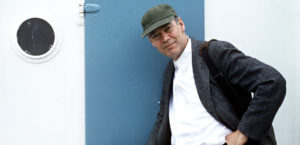Poor Stacia Datskovska. The student at New York University recently wrote a piece about why she hated studying in Florence for her semester abroad. Before arriving, Datskovska imagined “summer flings with people who called me ‘bella’”. What she experienced was different. “I grew to despise the sights, hated the people”, who she describes as “hostile, inconsiderate, and preposterous”.
The column is hardly a significant contribution to the literature of travel writing. Nor is it the most offensive account of an American in a foreign country ever written. But that it was met with such deep hostility speaks to a profound contemporary anxiety with what Datskovska did: dare to write unselfconsciously about a foreign country.
If Stacia Datskovska is too much for us, what would we do today with Martha Gellhorn? The travel writer and war correspondent, who died 25 years ago, looked upon many of the places she visited with a greater degree of scorn and disdain, disillusionment and despair, than any American undergraduate student in Florence could muster.
Gellhorn was like the protagonist of one of William Boyd’s cradle-to-grave novels. Born in 1908 and dead by 1998, she bore witness to an outstanding chunk of the period the historian Eric Hobsbawm described as the Age of Extremes. In the Madrid of 1937, she saw the republican government under the siege of General Franco’s fascist army. She followed Russia’s brutal invasion of Finland in 1939, and was there when Dachau was liberated by the American Army in April 1945. In Sixties Saigon, she documented the savage brutality of America’s military might. At an age when most people are comfortably retired, she was covering the war in El Salvador.
Gellhorn was always a witness, never a saint. Unlike many contemporary authors, she does not go out of her way to show she is a good person. Her moral probity is never foregrounded. Quite the opposite. She complains about the shit weather. She is annoyed by the unfamiliar customs of the people she encounters in foreign lands. This degree of honesty makes her an anachronism in today’s literary climate.
It is understandable that her reporting was full of bleak description; war is meant to be horrible. But her travel writing had none of the extravagant sweetness of, say, Jan Morris. Gellhorn’s collection Travels with Myself and Another describes five “horror stories”: thoroughly unsentimental accounts of human absurdity, rendered in brisk and unflashy prose. She never idealised a place once she had seen it, even if she had in anticipation. Before she visited Africa, for instance, it was “a vast lion-coloured plain, ringed by blue mountains. Beautiful wild animals roamed across the land and the sky went up forever. There were no people in this picture, no Africans or anyone else.” She kept trying to get editors to send her there, but eventually gave up and paid her own way. What she found was not the virgin territory of her imagination but a place full of human muck.
She describes the local population in a way that would make many modern readers wince. “The natives look like Caribbean Negroes,” she writes of Douala, “and are dressed in odd scraps which are apparently the lot of poor blacks who live anywhere near whites.” Her descriptions of the places she visited flit between revulsion and fascination — at certain times dehumanising the people she meets, and at other times endowing them with human dignity. “They are also very pleasant,” she continues, “unlike US Negroes who have plenty of reason to be surly and usually are. These Africans are after all at home, and bosses in their house… no one can push them around just because they have a white skin.”
These are candid testaments from the journal she kept, rather than polished thoughts. But even when she is writing in hindsight, there is an unvarnished quality to her prose that can be challenging to read. In another chapter of Travels, about a visit to China in 1941, she describes Hong Kong as a city which was “nailed together hurriedly from odd lots of old wood and sounded like a chronic Chinese New Year”. There is no attempt to spare feelings; you could get cut by a spike here or a broken chip there.
She was the same, apparently, in real life. At a dinner party, Gellhorn was once asked by the Irish novelist Edna O’Brien where she got her clothes from. She briskly replied: “Oxfam — I don’t give a fuck about clothes.” Being liked did not interest her. She once told a woman interviewing her: “This conversation is so boring I think I’m going to faint.” This quality makes her bracing to read, and read about. She wrote it as she saw it, warts and all. She never shied away from looking at the Other, even when her conclusions on it were not nice. This abrasive attitude to everyone and everything would be interpreted, today, as a form of reactionary politics; it is better to not write about foreign people than to sometimes write negatively about them, some say.
The alternatives are to write uncritically, or write about yourself, and Gellhorn would do neither. Like Datskovska, Gellhorn doesn’t look inward. As her biographer, Caroline Moorehead, writes, she “had no gift for introspection. Not just no gift: no taste for it either. Autobiography, the long journey through the past, for her spelt if not excessive self-love then at the very least self-absorption.” She wished to present — and allow the reader to make up her own mind — rather than oppressively impose her own self on whatever she wrote. If she did write about what she felt, she never dwelled on these feelings; to her, they were a distraction from what was in front of her.
Travel, for Gellhorn, was not about self-discovery. Paradoxically, it is this self-effacing aspect that makes her writing more honest than the very subjective stories — of the Eat, Pray, Love variety — that dominate the travel genre today. These modern accounts tell us more about the writer than the place that is meant to be described.
She had a great nostalgia for travel before the genre transformed, before mass tourism. This was the time when the “Mediterranean was clean”, and “when you were a person not a sheep, herded in airports, railway stations, ski-lifts, movies, museums among your fellow sheep”. In this instance, Gellhorn is asserting her self against what she sees as the homogenising tendency of the ski-lifts, the museum, the railway station. She looked back fondly at a time when it was uncomfortable to travel; she looked down on her sanitised present. “If attendance at airports was compelled by law,” she wrote, “we would protest in marches, demonstrations, picket the White House and Parliament, take the case to the World Court, write to The Times, raise the roof.”
But she couldn’t stop travelling. The bliss of getting out of oneself was so immeasurably rich to her. Once we are finally “inside the plane, our faces change, we toss jokes about, laugh, chat to strangers.” One doesn’t need to approve of all her observations, or sympathise with her fondness for an older age of foreign travel, to find some inspiration in her approach to writing. She could be grumpy and intolerant, parochial and savage, but she always strove to look outwards. Gellhorn’s was a life that testified to the importance of writing about foreign lands uninhibitedly and vigorously; without such travellers, our view of the world is diluted.
Disclaimer
Some of the posts we share are controversial and we do not necessarily agree with them in the whole extend. Sometimes we agree with the content or part of it but we do not agree with the narration or language. Nevertheless we find them somehow interesting, valuable and/or informative or we share them, because we strongly believe in freedom of speech, free press and journalism. We strongly encourage you to have a critical approach to all the content, do your own research and analysis to build your own opinion.
We would be glad to have your feedback.
Source: UnHerd Read the original article here: https://unherd.com/



